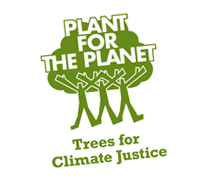Global Warming
"The era of global warming has ended; the era of global boiling has arrived," said UN Chief Antonio Guterres.

About Global Warming
Global warming refers to the long-term increase in Earths average surface temperature due to the accumulation of greenhouse gases in the atmosphere. These gases, primarily carbon dioxide, methane, and nitrous oxide, trap heat from the sun and prevent it from escaping back into space, creating a natural greenhouse effect. However, human activities, such as burning fossil fuels, deforestation, and industrial processes, have significantly increased the concentration of these greenhouse gases, intensifying the greenhouse effect and causing the planet to warm at an alarming rate. Global warming is a critical issue with far-reaching consequences, including rising sea levels, more frequent and severe weather events, and disruptions to ecosystems and human societies.
Health Consequences
Global warming can have a range of health consequences, both direct and indirect, due to its impact on the environment and climate. Here are some of the key health consequences associated with global warming:
a) Heat-Related Illnesses : Global warming can impact food safety by promoting the growth of foodborne pathogens and altering the distribution of foodborne diseases. Food insecurity can also increase as crop yields are affected by changing climate conditions.
b) Respiratory Problems : Global warming can impact food safety by promoting the growth of foodborne pathogens and altering the distribution of foodborne diseases. Food insecurity can also increase as crop yields are affected by changing climate conditions.
c) Vector-Borne Diseases : Changes in temperature and precipitation patterns can alter the distribution and behavior of disease-carrying vectors such as mosquitoes and ticks. This can lead to the spread of diseases like malaria, dengue fever, and Lyme disease to new regions.
d) Waterborne Diseases : Increased temperatures can affect water quality and promote the growth of harmful bacteria and algae in bodies of water. This can lead to waterborne diseases such as cholera and gastrointestinal infections.
e) Food Safety Risks : Global warming can impact food safety by promoting the growth of foodborne pathogens and altering the distribution of foodborne diseases. Food insecurity can also increase as crop yields are affected by changing climate conditions.
Plant A Tree!
You can play a part in combatting global warming on an individual level by planting trees. Trees absorb carbon dioxide from the atmosphere during photosynthesis, reducing greenhouse gas concentrations.





